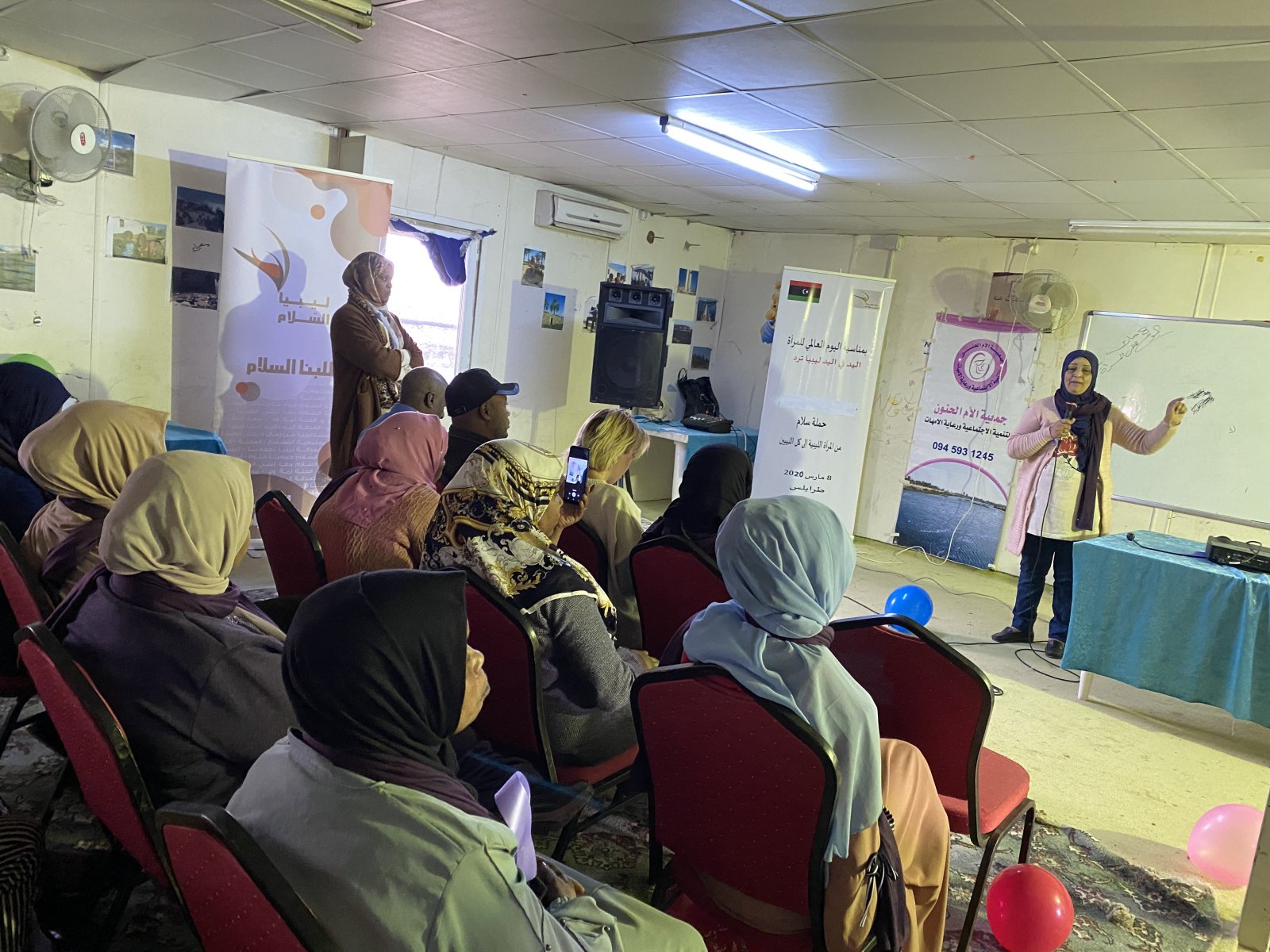
SHARE
Underage girls are an underrepresented group in Libya and often have life-altering decisions made for them without their consent, including forced marriages. In the Middle East and North Africa, one in seven girls marries before her 18th birthday, which often means an end to the girls’ schooling and at-risk early childbearing. The practice of child marriage often perptuates a cycle of poverty, low education, and limited economic opportunities for women. UNICEF estimates that child marriage costs economies at least 1.7 percent of GDP. Beyond the developmental impact, child marriage is a concerning issue that counters the spirit of an open and democratic society.
In response to this pressing issue, the National Democratic Institute (NDI) is supporting a coalition of local civil society organizations on the “Not-Before 18” Campaign (NB18) to reduce the number of early marriage cases across Libya by raising awareness of the practices’ negative consequences. In addition to its awareness work on social media and its government lobbying efforts, the campaign conducts trainings, interactive activities, and public debates throughout Libya in pursuit of its goal. To this end, NDI has been supporting NB18’s efforts by providing training for campaign members, facilitating meetings and partnerships with Libyan officials, and by building up campaign members’ capacity to hold country-wide events.
After trending downwards for several years, the number of cases of child marriage has skyrocketed this year due to a government program in Libya that provides up to 40,000 Libyan dinars (worth around $8,700) for newlywed couples. The program’s impetus had arisen as many Libyans found themselves unable to afford marriage after a decade of civil unrest and economic hardship. The competing government in the east, based in Tobruk, passed a similar program shortly thereafter granting up to 50,000 Libyan dinars (around $10,800) for all married couples. These programs, however beneficial to many struggling Libyans, have had a negative impact on over 900 Libyan girls whose families have forced them to get married in order to receive the government stimulus. The marriage fund program threatened the early successes of the NB18 campaign since its inception in 2018, creating a need for further work by the campaign.
Building on this need, campaign members recently decided to expand its support and the reach of the campaign to middle and high schools throughout Libya. On November 11, NDI and NB18 held a ceremony to inaugurate the second phase of the plan focusing on school-based events and training in cooperation with officials from the Ministry of Education and its Office of Social Workers, along with the Ministry of Social Affairs. During the event, participants discussed the current state of underage marriage and its impact on the campaign’s goals. The campaign team announced the details of the school campaign, which includes an ongoing, sustainable series of training sessions led by social workers for young girls and their parents to raise awareness of the pitfalls and dangers of underrage marriage, and provides resources on alternative options and legal recourse. To date, the campaign has trained more than 140 social workers on how to facilitate these types of events in schools.
Additionally, the program includes events where young women speak publicly on the subject of marriage and its effects on their lives. This programming is furthering NDI’s goals of empowering youth in Libya through providing platforms for them to have their voices heard, and encouraging the further development of civil society in areas of the country where these organizations have long been neglected. Echoing this sentiment, Fawzia Bin Ghashir, the Director of the Social Service Office, reflected that this project will create “a conscious generation that seeks to achieve its ambition instead of seeking early marriage.” NDI will continue to work collaboratively with NB18 and the Ministry of Education on this issue by providing training materials and tools, engaging in collaborative strategic planning, and supporting the further development of civil society and their partnerships with government to collectively address this issue.
NDI's engagement in Libya is implemented with support from the United States Agency for International Development (USAID) through the Consortium for Elections and Political Process Strengthening (CEPPS).
Author: Elza Harb is a Program Associate with the Middle East and North Africa team at NDI.
NDI is a non-profit, non-partisan, non-governmental organization that works in partnership around the world to strengthen and safeguard democratic institutions, processes, norms and values to secure a better quality of life for all. NDI envisions a world where democracy and freedom prevail, with dignity for all.


